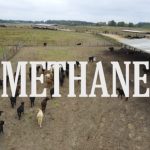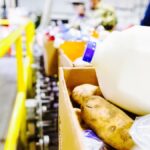
Opinion

Opinion: Smarm, snarl, and snark
Style can’t replace facts, honesty, and ideas in an off-the-mark New York Times video
Opinion: Hey, genius, mind your own business
The agriculture industry isn’t always interested in some of the good advice it gets

Opinion: Opportunities available to participate in reconciliation
Soil scientist aims to complete picture of available opportunities in Indigenous communities

Opinion: Election didn’t offer much for PM options
It was an election of voting against, not voting for

Opinion: Ethanol’s future is running out of gas
As electric vehicles take off, biofuels are set to sputter

Opinion: ‘The true cost of food’
Study says nearly two-thirds of food costs aren’t properly accounted for
Opinion: Co-operation breakdown
Drought-prompted AgriStability changes are not a sign of continued co-operation

Opinion: UN summit shows climate change not going away
The direction isn’t clear, but the amount of discussion on agriculture and climate change says the policy winds will blow
Letters: More harm than good
Comment: Could dangerous new COVID variants evolve in pets and farm animals?
So far there appears to be little evidence of elevated risk, but it bears keeping a close watch




